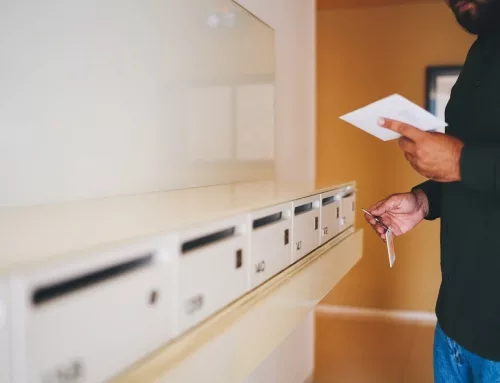We are an aging society, and as the rate of Baby Boomers retiring rises every year securing your Social Security Income (SSI) becomes even more important. Indeed, while around 50% of US citizens have additional investments and savings put away for their retirement the other half are relying solely on their SSI checks.
Unfortunately, that means if the IRS finds a reason to garnish those checks, you could be left in a pretty dire situation without enough finances to live a comfortable retirement. The good news is you can educate yourself all about the conditions under which the IRS can garnish your SSI below and expand your knowledge on tax debt relief for senior citizens.

Is it possible for the IRS To garnish my Social Security Benefits?
Sadly, the simple answer to the question: can the IRS take my social security benefits is yes. It works in a very similar way to wage garnishment in that they can take up to 15% of your SSI if you are classed as tax delinquent (That is, you own outstanding tax.).
The IRS can do this via the Federal Payment Levy Program (FPLP) which was enacted in the year 2000. The FPLP allows the IRS to levy 15% of your social security benefits, including your SSI payments to pay down any tax debt owed.
However, the IRS is bound by the terms of the Federal Payment Levy Program (FPLP) which means there are some exceptions that you may qualify for. A topic you can read all about in the proceeding sections, below.
Will the IRS notify me if they intend to garnish my SSI?
Yes, the IRS must send you two letters before beginning to levy money from your SSI. They cannot start to take any money until 30 days after you have received the second letter. It is during this time you will have the opportunity to appeal to their design.
Can the IRS take all my SSI?
No, the IRS is not allowed to take all of your SSI payments. Instead, the law protects you from losing all your retirement income as it states they can take only a maxim of 15%. However, it is worth noting that before the FPLP program was implemented the IRS could not garnish SSI payments on anything under $750 a month. This is no longer the case, and they are now at liberty to levy any amount of SSI if you are in tax debt.
It is also now possible for the IRS to garnish your:
- Disability insurance benefits
- Federal old-age and survivors trust funds
- Federal employee retirement annuities
- Some federal salaries
- Federal employee travel advances or reimbursements
- Federal payments made to you by a contractor/vendor doing business with the U.S. government
It is also now possible for the IRS to seize assets such as your:
- Vehicles
- Real estate for back taxes owed
- Bank accounts
- Wages you may be receiving from a current occupation.
What can the IRS not garnish?
Although the list of financial assets that they can levy for tax debt is long, you will be pleased to discover that there are some benefits that the IRS is not allowed to garnish for the repayment of tax debt.
The first of these are benefits awarded to children. While the second is lump sum death benefits. In addition, VA disability benefits are exempt from IRS levies. This is because such compensation is a fundamental right for those that served, with many veterans relying on them to live their lives. There are also exemptions made for those living below the poverty line.
Is it possible to prevent the IRS from garnishing my SSI?
The critical issue that many people face is that if the IRS takes 15% of their SSI, they will be left with significantly less money on which to cover their bills and live each month during retirement. This begs the question of many as to whether they can prevent the IRS garnishing process.
In answer to that, there are some important points to consider. The first is that the IRS is in a preferential position due to the Federal Payment Levy Program (FPLP), which can make it hard to fight their judgment.
However, while the Federal Payment Levy Program (FPLP) means they are in a favorable position, the IRS must also abide by the guidelines it sets out. This means there are some opportunities to appeal the decision.
Indeed, it is important to note that any appeal you make must be before the final 30 days’ notice is up, something that can make this complicated and detailed process even more challenging for those affected.
Your option to resolve before the 30 days
If you wish to go down the resolution route there are 4 options to choose from:
- You can pay the debt in full, thereby resolving it and canceling the need for a levy.
- You can agree on a offer in compromise or installment payments with the IRS.
- You can declare financial hardship, which if successful exempts you from SSI garnishing by the IRS
- You can appeal the IRS’s decision.
However, above all else, you must never do it to hope that the Final Notice of Intent to Levy will go away on its one. If you have received a financial notice that means the IRS is preparing to go ahead with the levy and things are already in motion.
Indeed, the levy process usually means that the first step the IRS will take is to seize your assets and freeze your bank account. If this is not enough to cover your tax debt, they will then move on to garnishing your SSI income, which can leave you significantly out of pocket.
Work with a tax professional to protect your SSI income from the IRS
It is with that in mind, that working with a tax professional can be the most helpful course of action here. Indeed, by speaking to our tax debt relief specialist as quickly as possible after receiving a notice of Levy from the IRS you will gain the maximum amount of time to resolve the issue before it gets to the garnish stage.
Call (855) 749-2859 or contact us by email today, to get the tax help you need.
When you are going through tax issues, it’s natural to worry about whether you are going to lose your home. Your home is your biggest asset and it can be stressful to feel like you’re going to have to give it to the IRS.
The process of dealing with the IRS if you are unfamiliar can be rather difficult and complex, but if you have the right advice, it’s not so scary. In this article, we’re going to talk about whether the IRS can and will levy a primary residence if there is a debt owed by you. Let’s read on and take a look at what can happen and how you can stop it from happening to you.

Can they take your home?
The answer off the top? Yes, they can take your home. However, it’s important that you note that as a taxpayer you have many more options to resolve your tax debt than you think so the important thing is not to panic. If your tax returns show that you owe money to the IRS this means that you have a tax debt.
If you continue not paying your taxes, enforced collection is the usual step that the IRS will take. The IRS can take your personal property during enforced collections and they do this using a tax levy. This levy can allow the IRS to take your wages as well as money sitting in a bank account and your home. The thing to remember the most is that this is highly unlikely to happen. Homes are actually only ever seized in around 300/330,000,000 issues!
When you have a tax debt it’s not going to be the taxes that could lose your home, it’ll be the unpaid levies involved. They will take the money from your paycheck automatically or from your account, and this can cause missed repayments on your mortgage. That’s mostly where the issues lie.
The IRS would prefer a lien
Did you know that the IRS would much rather put a lien on your home instead of a levy? A tax lien is a claim put against the house by the IRS and it protects the interest in the property. This means that when it’s sold, the IRS will be paid the amount of the lien. A tax lien is much easier to use to recover unpaid taxes from the sale of a house.
The tax debt is usually paid when a house is sold, but it’s not the only way that a tax lien can be removed. The IRS has a process and it enables taxpayers to make this particular request. The IRS does, however, have to make their lien secondary to a newer, refinanced mortgage.
How are IRS tax levies used?
Tax levies are used to garnish wages and other personal property not protected by the Internal Revenue Code (IRC) § 6334. The only protected assets are child support and unemployment benefits among others. Liquid assets are usually seized first and your home would be at the bottom of the list.
There are certain requirements that must be met before the IRS can seize your home and these include:
- You have to owe more than $5,000 in tax debt
- There has to be a signed order from a federal court judge – or a magistrate
Even with these two met requirements, if only one spouse owes the IRS, the other can stop the seizure. If the IRS moves forward to size the home, the notice has to be issued and posted at the front of the home. Usually, you’ll find these notices on the front door of the house.
What happens after a home seizure?
After your house has been seized, your home will be auctioned by the IRS. It’ll be sold for fair market value and the auction will be posted on a bulletin board at the local IRS office or even the nearest federal courthouse. Even when it’s sold, it doesn’t mean that you have to move out right away or anything. There is time to plan the next steps and you even have the right to buy your home back. This is known as the right of redemption.
Can you stop it from happening?
As a taxpayer, you have the rights of collection due process. These are rights that require the IRS to follow a certain procedure. There will be a hearing and it’s here that you can try to convince revenue officers that the house wouldn’t cover the mortgage or the cost of the sale.





